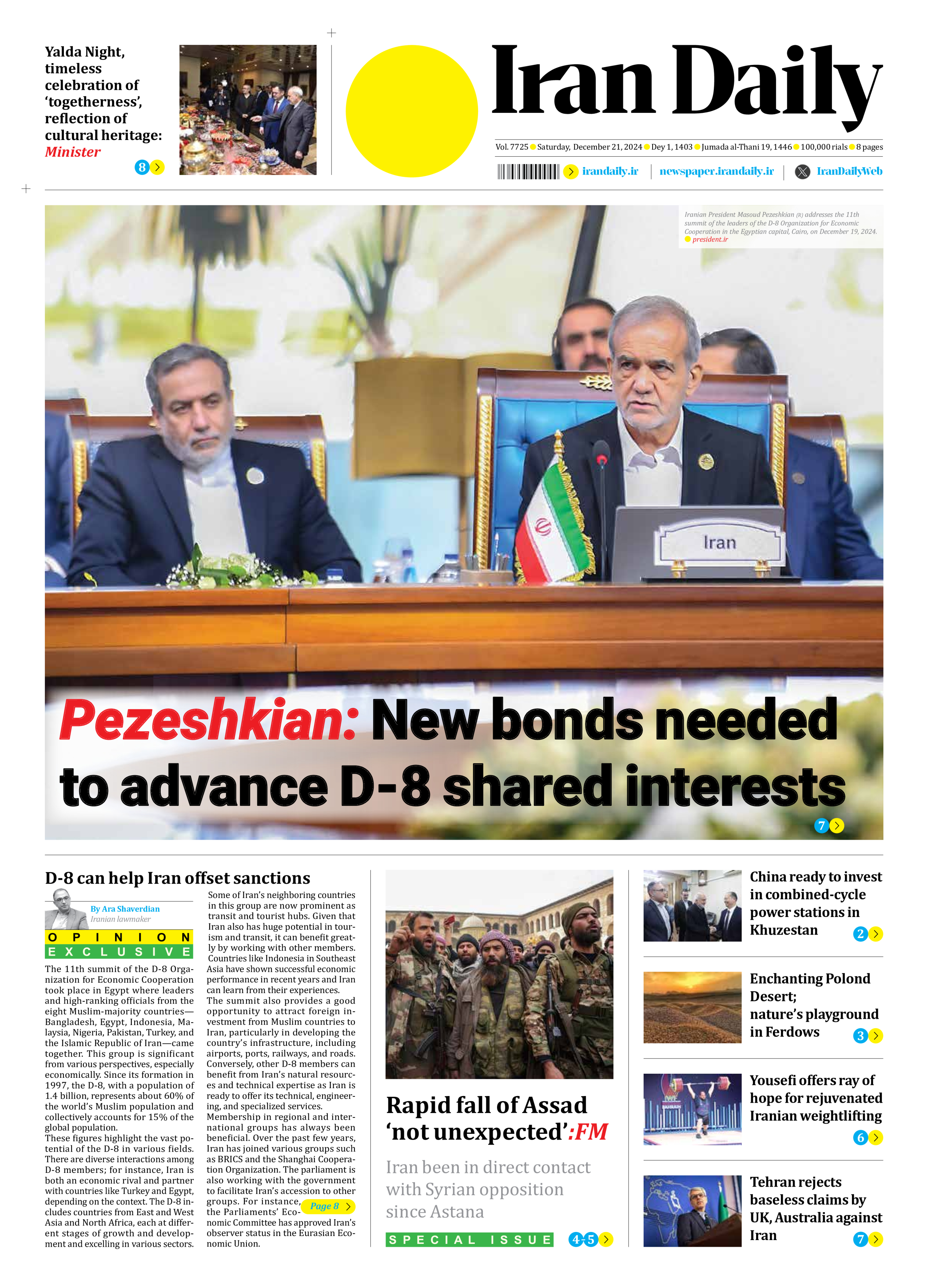
D-8 can help Iran offset sanctions
By Ara Shaverdian
Iranian lawmaker
The 11th summit of the D-8 Organization for Economic Cooperation took place in Egypt where leaders and high-ranking officials from the eight Muslim-majority countries—Bangladesh, Egypt, Indonesia, Malaysia, Nigeria, Pakistan, Turkey, and the Islamic Republic of Iran—came together. This group is significant from various perspectives, especially economically. Since its formation in 1997, the D-8, with a population of 1.4 billion, represents about 60% of the world’s Muslim population and collectively accounts for 15% of the global population.
These figures highlight the vast potential of the D-8 in various fields. There are diverse interactions among D-8 members; for instance, Iran is both an economic rival and partner with countries like Turkey and Egypt, depending on the context. The D-8 includes countries from East and West Asia and North Africa, each at different stages of growth and development and excelling in various sectors.
Some of Iran’s neighboring countries in this group are now prominent as transit and tourist hubs. Given that Iran also has huge potential in tourism and transit, it can benefit greatly by working with other members. Countries like Indonesia in Southeast Asia have shown successful economic performance in recent years and Iran can learn from their experiences.
The summit also provides a good opportunity to attract foreign investment from Muslim countries to Iran, particularly in developing the country’s infrastructure, including airports, ports, railways, and roads. Conversely, other D-8 members can benefit from Iran’s natural resources and technical expertise as Iran is ready to offer its technical, engineering, and specialized services.
Membership in regional and international groups has always been beneficial. Over the past few years, Iran has joined various groups such as BRICS and the Shanghai Cooperation Organization. The parliament is also working with the government to facilitate Iran’s accession to other groups. For instance, the Parliaments’ Economic Committee has approved Iran’s observer status in the Eurasian Economic Union.
Page 8







